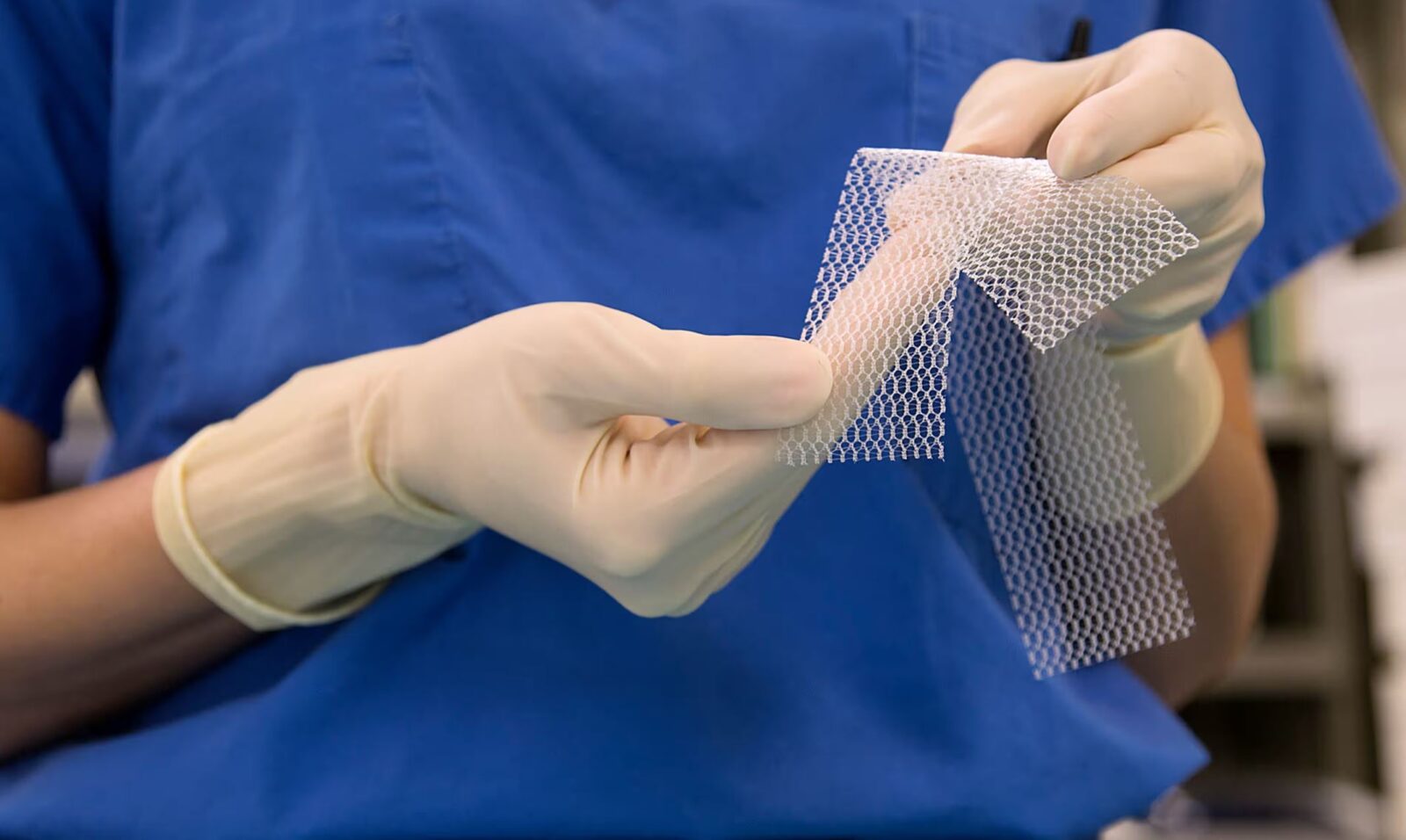Medics failed to properly advise women of the risks associated with the controversial TVT mesh procedure and proceeded to surgery prematurely
Nancy has to change her incontinence pads six days a time and suffers from dehydration due to leaking so much fluid
The mother-of-two has settled her medical negligence claim against Swansea Bay University Health Board
Law firm Lime Solicitors representing more than 50 women who have been left with life-changing complications by the net-like implant.
A mother-of-two who has been left with debilitating life-long pain and unable to have sex with her husband has settled her medical negligence claim against Swansea hospitals that failed to advise her of the risks associated with TVT mesh – following support from law firm Lime Solicitors, which is dealing with more than 50 live cases relating to the controversial device.
Nancy Ellison[i] says that had she been properly advised of the risks associated with the procedure – which were well-documented at the time – and shown alternative available options, she would not have consented to the surgery.
The 57-year-old first started leaking urine when coughing in 2010. As time went on, her symptoms deteriorated and she was having more accidents, which stopped her from going out. She initially visited her GP in April 2012 and was referred to a consultant obstetrician and gynaecologist at Neath Port Talbot Hospital, who she saw on multiple occasions over the next few months, the last time being in February 2013.
Despite being told that clinical review was necessary to assess her symptoms and chasing on multiple occasions, Nancy received no further communication from the gynaecology department until she was seen again in January 2016. Later that spring, she was offered TVT mesh and had surgery at Singleton Hospital in October 2017, aged 50.
Nancy was seen post-operatively for the first time in June 2018 after she noticed the stitches were unravelling. An examination confirmed the mesh was protruding through her vagina, and the gynaecologist said the procedure had gone “very wrong”. Multiple reviews and infections later, Nancy had the exposed mesh removed in September 2018.
Lime Solicitors’ medical negligence claim against the Swansea Bay University Health Board, which runs the hospitals, found that that Nancy was lost to follow-up and there was a failure to trial medication prior to being offered surgery. It also revealed she was not appropriately consulted of the material risks of the procedure, which was performed in the absence of informed consent.
Nancy, of Swansea, said: “I remember asking the gynaecologist the success rate of TVT mesh. He said he had done this for 12 years and only 12 people had minor problems. He didn’t tell me of any downsides and did not say what could go wrong. Had I known there were complications or other, less invasive options, I would have tried them before going straight to an operation.
“I tried to have intercourse with my husband around six weeks after the surgery, but he could feel the mesh inside me and said it felt like a cheese grater to him. He started to urinate blood and caught an infection. We no longer have sex because it’s too painful and embarrassing.
“My incontinence is so bad that I have to wear pads all day and all night. All I do is leak. I can be sat down and the pad will be filling up without me realising. I am often dehydrated as I leak so much fluid. I have tried drinking more but it makes me leak more, so I stop and end up getting dehydrated and feeling ill – it’s a catch 22 situation.
“Before the incontinence, my social life was active. I would take my grandchildren out, go walking and I loved swimming, but I haven’t been for several years as I have to wear nappies. I haven’t walked my dog since having the mesh inserted because it’s too painful.
“I feel people do not realise what you are going through. People just think I am being grump but they don’t know that I don’t want to move or laugh in case I wet myself. I look back at the things I used to do like taking the grandchildren to school and it feels like somebody else, a different person, did this.”
Lime Solicitors, which represented Yvette Greenway-Mansfield in the largest known settlement for vaginal mesh, is continuing to fight for dozens of women left with life-changing complications by the net-like implant, which acts like a hammock to support the urethra. Figures suggest there were 127,000 mesh implants between April 2008 and March 2017, but campaigners believe the actual number is higher.
Maryam Abdullah, medical negligence associate at Lime Solicitors, who led the claim, said: “For years, women have been given the option of surgical mesh insertion as a solution for prolapse and incontinence. As a result, many women have found themselves in excruciating pain from mesh that has eroded, contracted and protruded into other areas of the body.
“Hospital trusts owe a duty of care to ensure they obtain patients’ fully-informed consent to any surgical procedure and advise of the likely risks that could arise as a result. However, in our experience, many gynaecologists have proceeded to surgery prematurely before exhausting all behavioural and medical options.
“There is a real lack of knowledge when it comes to mesh and those affected are made to feel like the pain they are going through and the symptoms they are experiencing are not bad – there is almost a disbelief from medical experts. We have worked on many cases where doctors have deemed to know what is best for women instead of empowering them to make their own choices and decisions.”









Leave a Reply
View Comments